Personal finance books are a dime a dozen.
If you had a nickel for every personal finance book out there, you wouldn’t need a personal finance book.
But among the sea of mediocre texts, there are some nuggets of gold that we’ve dug up.
We’ll start with 4 classics, then we’ll take a look at some fantastic books that cover other areas of personal finance.
You don’t need to read these in any particular order; however, we do suggest reading the classics first so you have a solid mindset and knowledge base.
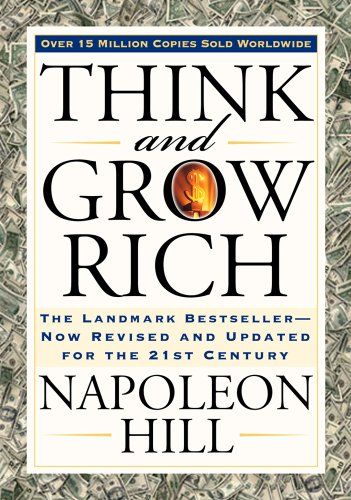
Think And Grow Rich (Napoleon Hill)
We’ll start out list with one of the first true personal finance books.
Think And Grow Rich is more than a book about how to budget, invest, or save money; it’s a primer on success.
Napoleon Hill lays out one of the most important concepts in both personal finance and self-improvement: autosuggestion, aka telling yourself constantly that “you can do it”.
Hill also talks about the power of stubbornness and “sticking to your guns”. Essentially, you’ll have a lot of naysayers – ignoring them and doing your thing anyways is the only path to success. After all, you’ll never know if you never try!
Lastly, Hill explains why Mastermind groups are important to improvement.
In case you didn’t know, Napoleon basically invented the Mastermind group.
But wait… what IS a Mastermind?
All it is is a small group of people with similar goals that combine their brain power to accomplish said goals.
In other words, Masterminds produce synergy.
So if you’re looking to get in a “success mindset”, you need to read Think And Grow Rich ASAP.
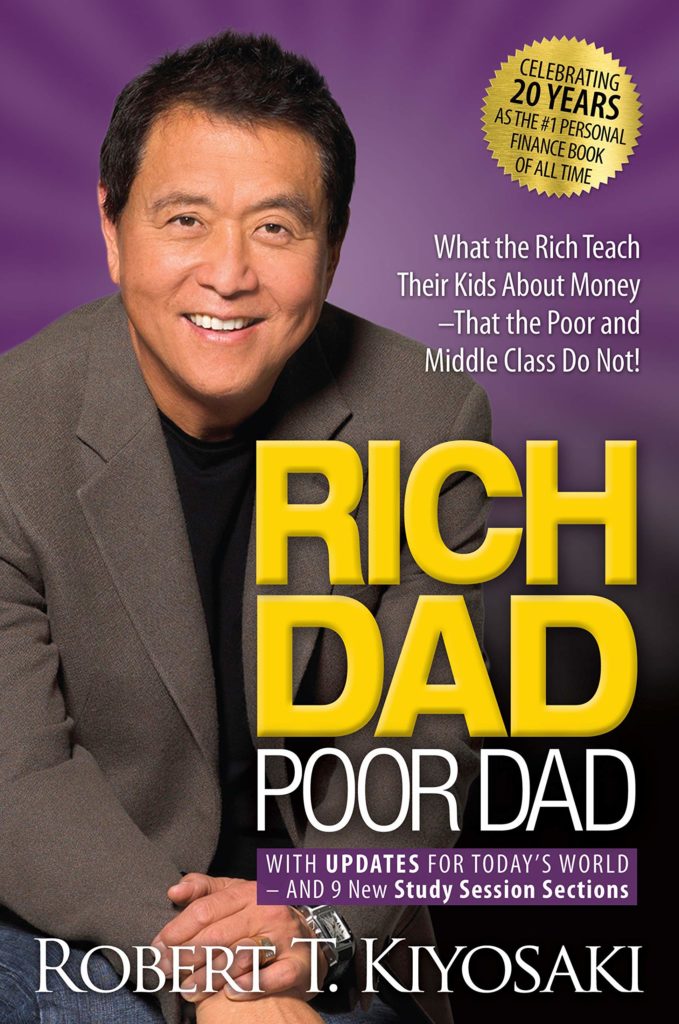
Rich Dad, Poor Dad (Robert Kiyosaki)
Rich Dad, Poor Dad is widely considered the greatest personal finance book of all time.
It details how author Robert Kiyosaki’s developed his money mindset from his two “dads”: his real dad (the poor dad) and his best friend’s much wealthier dad (the rich dad).
Both dads had different approaches to money, and these two approaches lead to Kiyosaki discovering the true path to wealth.
According to Kiyosaki, fear and greed govern most of our thoughts about our money. He details how the low and middle classes work for their money because it’s “safe”, while the rich take risks and put their money to work for them.
Rich Dad, Poor Dad is an absolute classic. It helps you establish the correct mindset for building permanent wealth and break free of the rat race.

The Total Money Makeover (Dave Ramsey)
Want a plan straight from one of America’s most respected financial coaches?
Grab a copy of The Total Money Makeover.
Within the book, Dave Ramsey explains the importance of having a budget in order to get your finances on track. Without a budget, things can add up without you even noticing.
The rest of the book consists of 7 steps that you must take in order to become financially healthy.
Each chapter lays out exactly how to do each step so that you can inch closer to financial health. Ramsey weaves personal success stories into his advice in order to provide the motivation required to get your ducks in a row financially.
Trying to dig yourself out of debt and build up your wealth, but don’t know where to start?
Ramsey will tell you exactly how to do that if you grab this book today.
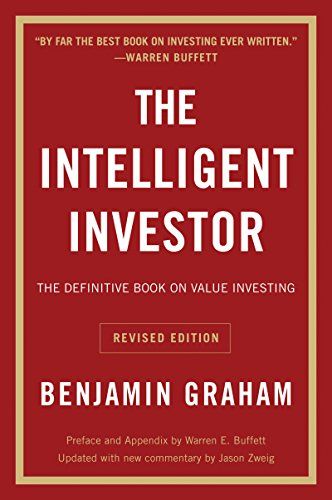
The Intelligent Investor (Benjamin Graham)
I’m sure you’ve heard of Warren Buffett, right?
Well before he was 20 years old, he accidentally bought a little book called The Intelligent Investor by his soon-to-be mentor, Benjamin Graham.
This book is part of the reason that Buffett is worth over $80 billion and it continues to inspire his investing style to this very day (he rereads it to this day).
That’s reason enough to buy this book, but let me tell you about it anyway.
Within the covers of this book, Graham lays out his philosophy of prioritizing safe, long-term investing over short-term, insane profits.
In addition, he nudges the reader to “ignore Mr. Market”, aka not try to beat the market. Instead, he explains how you should ignore the market and make safe, formulaic investments that will build you permanent wealth.
If you’re looking for tried and true principles for successfully navigating the stock market and building your wealth, I strongly recommend buying this book.
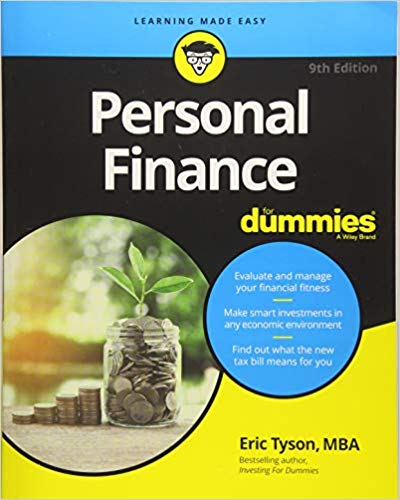
Personal Finance For Dummies (Eric Tyson)
Chances are, you have owned or read a “For Dummies” title. They tend to be quality guides on every topic.
Personal Finance For Dummies is no different.
Inside the signature yellow cover, you’ll find pages brimming with advice on the most pertinent personal finance topics.
Eric Tyson, The author of the book, takes complex financial topics and explains them in simple terms, making it easy to grasp the information presented.
This book will teach you ways to cut your spending and reduce your debt, leading to direct improvements in financial health. You’ll also find basic investing knowledge and savings advice in the book.
It’s quite unfortunate that although finances are a critical part of life, personal finance is not taught in school as much as it should be. However, this book is a great primer on basic financial education and it provides actionable advice for improving your financial health.
This isn’t the only “For Dummies” title about personal finance. Although we recommend this one first (as it’s pretty broad), there are other ones such as “Personal Finance In Your 20s and 30s For Dummies”.
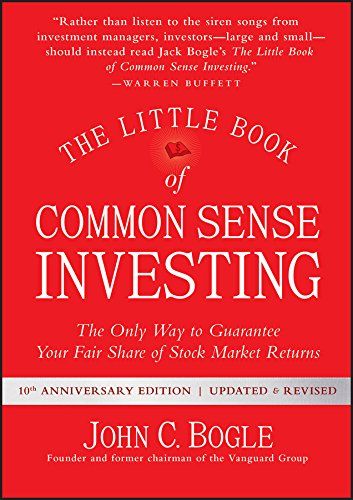
The Little Book of Common Sense Investing (John C. Bogle)
Alright, time to get into some more nitty-gritty books.
The author’s investing philosophy bares some key similarities to Benjamin Graham’s.
Perhaps most importantly is his opposition to actively managed funds. Like Graham, Bogle favors a safe, long-term approach over trying to beat the market.
Bogle loves index funds for their low risk. He goes in-depth into index funds within the pages of this book.
Looking to expand beyond the general philosophies found in The Intelligent Investor? The Little Book of Common Sense Investing will show you concrete ways to apply a low-risk, almost-guaranteed return on your investment.
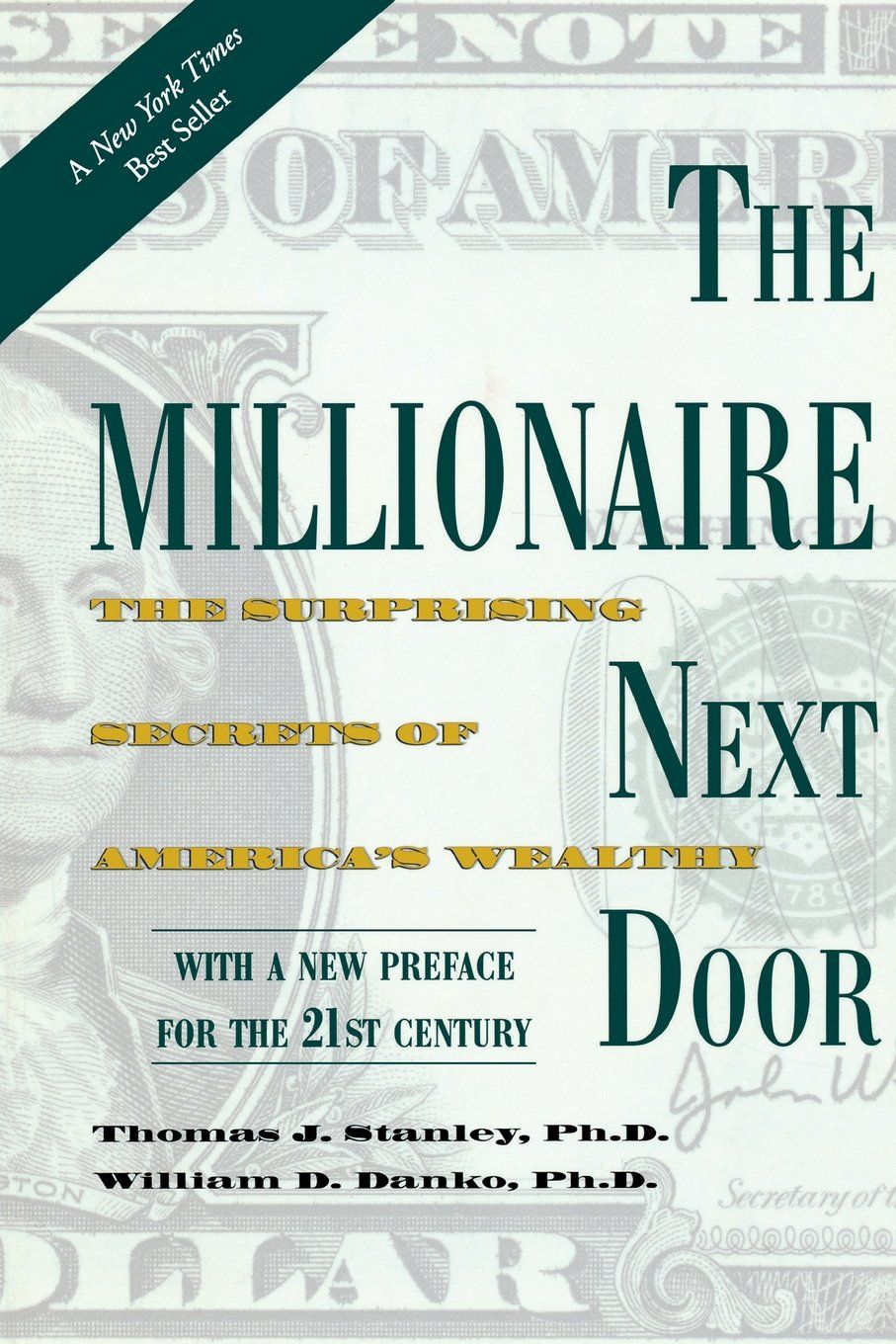
The Millionaire Next Door: The Surprising Secrets of America’s Wealthy (Thomas J. Stanley & William D. Danko)
Millionaires are shrouded in mystery.
That million-dollar mark can seem so mythical and impossible to reach.
In The Millionaire Next Door, Thomas Stanley and William Danko show you that it’s quite simple.
It’s not easy, but it’s simple.
Yes, you could start a business and build it up until you’re raking in the cash (or someone wants to buy you out for a large sum).
While that works, slaving away on a business is not everyone’s priority.
As with any good personal finance text, The Millionaire Next Door heavily emphasizes savings.
But not just because you need an emergency fund. Rather, saving a lot of your money (regardless of jumps in your income) will lead you to millionaire land.
If you need to be bringing in a million dollars each year to become a millionaire: just be smart with your spending and save a large amount of your income.
After all, many millionaires attribute a large part of their success to financial discipline.
I suggest reading this book if you’re looking to be wealthy; it just might re-inspire your childhood dream of becoming a millionaire.
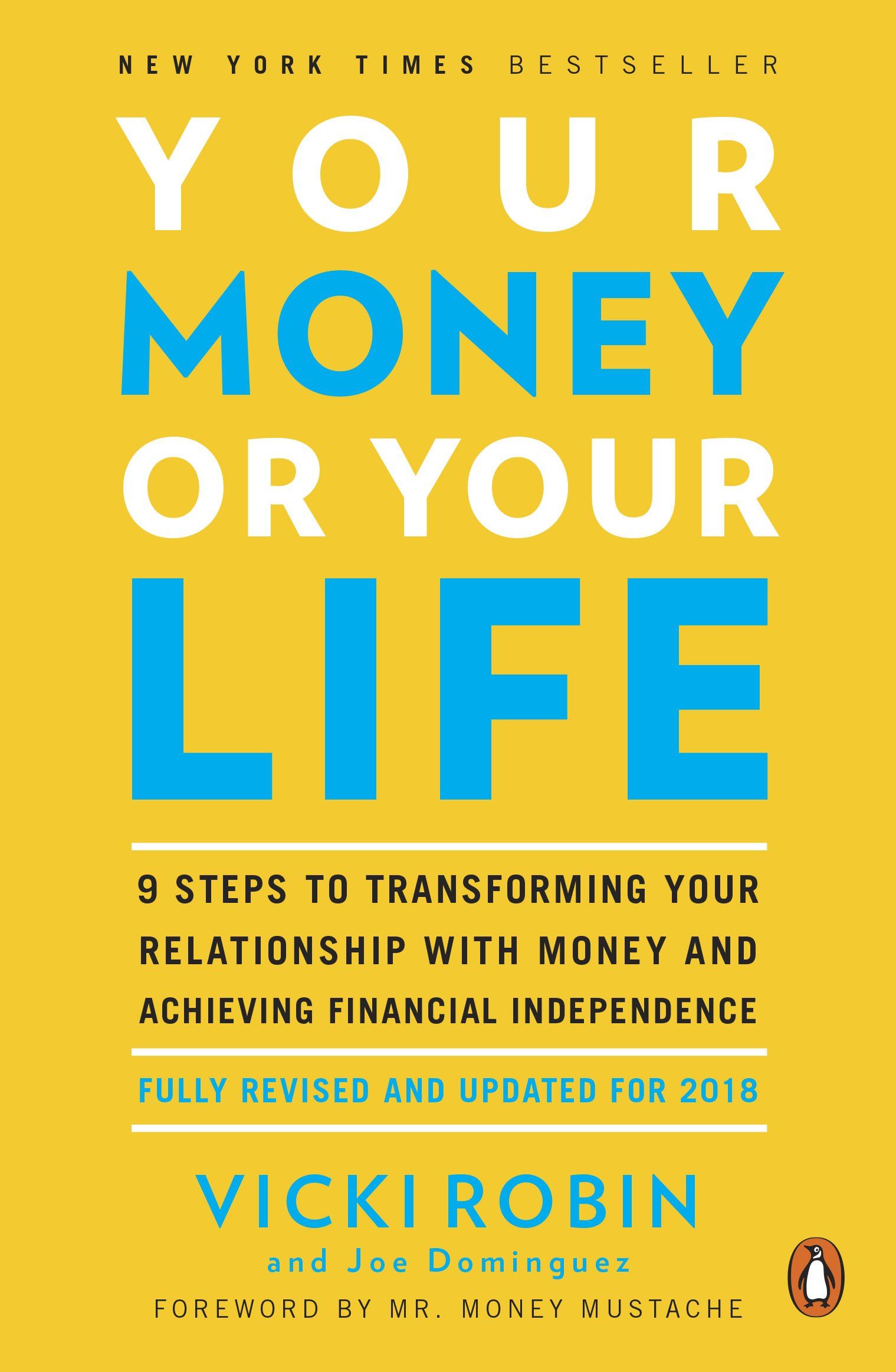
Your Money Or Your Life (Vicki Robin & Joe Dominguez)
So many personal finance books talk hard numbers, but never consider the human element of finance.
Your Money Or Your Life goes beyond teaching you how to invest or why budgeting is important; it shows you how to change your relationship with money.
What does that mean?
The authors aim to teach you how to make peace with your tumultuous financial past. It can hurt to see all the money you’ve wasted, but it’s a necessary step towards moving on.
They also want you to evaluate whether or not you’ve been valuing yourself through a personal finance lens. Do you spend money on things you truly enjoy? Are you penny pinching at the expense of your quality of life?
Money was meant to be used, so make sure you spend it in a way that makes you enjoy the life you have. Saving a few bucks is not worth it if you hate your existence.
Overall, this book is a blend of hard personal finance topics and action steps to change your thinking.
Reading this book will leave you with more than just tips on saving money; it will change your perspective on your finances.
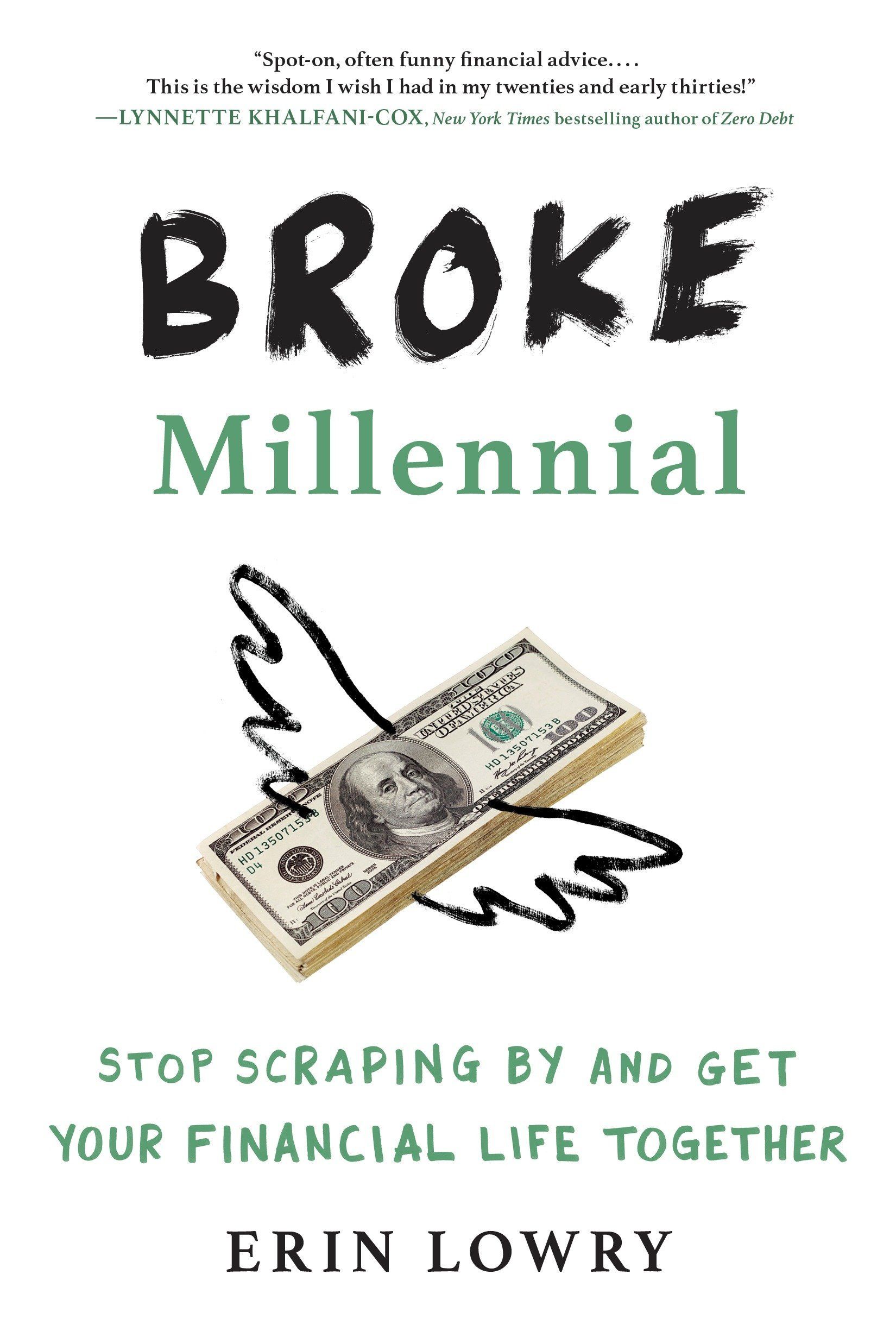
Broke Millennial: Stop Scraping By And Get Your Life Together (Erin Lowry)
Millennials are called a lot of bad things: spoiled, lazy, undisciplined, addicted to their phones, etc.
But millennials fire back with quips about previous generations ruining the economy, wages failing to keep up with inflation, rising education costs, lack of direction, etc.
Although that debate will rage on for the foreseeable future, I think we can all agree on one thing:
Millennials are broke.
Erin Lowry knew this, and decided to write a book that aims to show millennials how to manage their finances, escape financial turmoil, and build their wealth.
Oh, and she’s a millennial herself living in NYC, so she knows what she’s talking about.
Within the pages of Broke Millennial, Lowry covers not only the “boring” personal finances topic with a millennial twist, but she also addresses issues that millennials may need extra help in (like salary negotiation, living with your parents after college, and student loans).
Young people will derive immense value from this book. The earlier you learn to take control of your financial destiny, the better.
Grab this book if you’re young and serious about figuring out your finances!
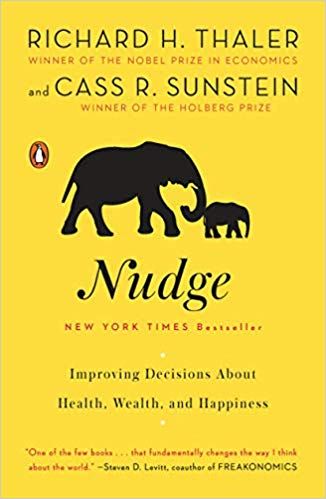
Nudge: Improving Decisions About Health, Wealth, And Happiness (Richard H. Thaler & Cass R. Sunstein)
Rounding out our top 10 list is a little book about behavioral economics.
In the simplest form, there are two ways that humans make decisions: rationally and irrationally.
Thaler and Sunstein refer to these by different names: Econ and Human.
Traditionally, economics assumes that human beings are 100% rational decision makers. They will take all the information they are given and make the most effective decision every single time.
Take a look around you, and that doesn’t seem quite right.
If everyone made rational decision 100% of the time, then why does brand loyalty exist?
Nudge explores human psychology and how it influences economic decision making.
Various biases and heuristics are examined and how they cause people to make what economists would consider “irrational” decisions.
Based on the information about biases and heuristics, Thaler and Sunstein propose a political/economic system called Libertarian Paternalism. The goal of their proposed structure is to maximize freedom of choice while also “Nudging” people towards decisions that would be best for them.
This book is less hard personal finance knowledge, you can take the content and use it in your own life to analyze your financial decision making.
For example: are you buying your car based on your experience with the brand? What if a different automaker has a cheaper, safer, more reliable car within the same class?
Your rational and irrational sides are fighting each other, and that’s what this book aims to show you.
Read Your Way To Wealth… Kind Of
If you could ask the richest people on earth what helped them become so successful, we can guarantee almost all of them will say their voracious reading habits helped them grow their empires.
Again, we recommend starting your personal finance reading journey with the “hallowed” titles like Think And Grow Rich or Rich Dad, Poor Dad.
Those classics provide you the foundation to effectively apply the subject matter in more “niche” books.
Get your hands on one of these books today and you’ll have direct access to the brains of personal finance experts!














































